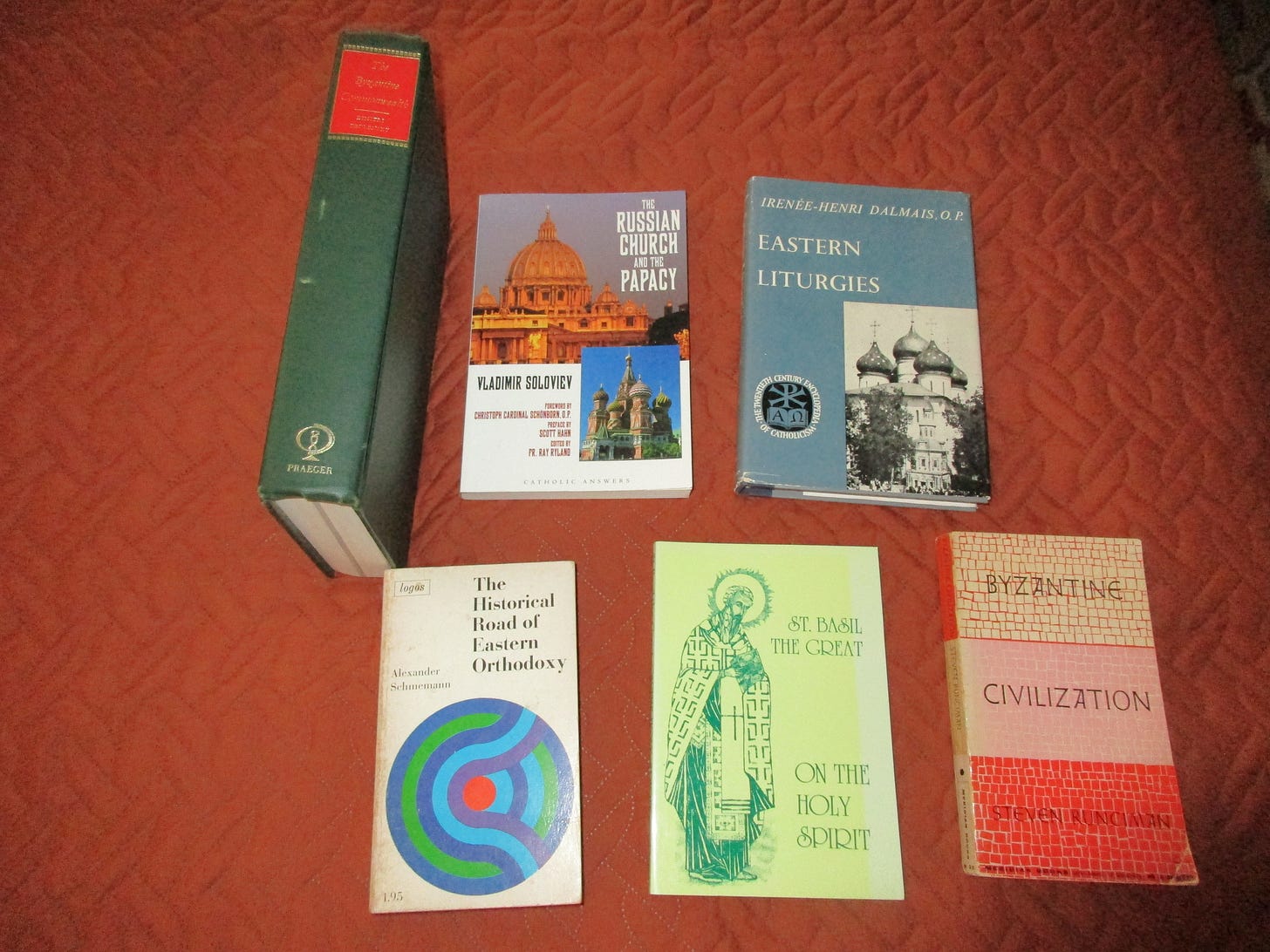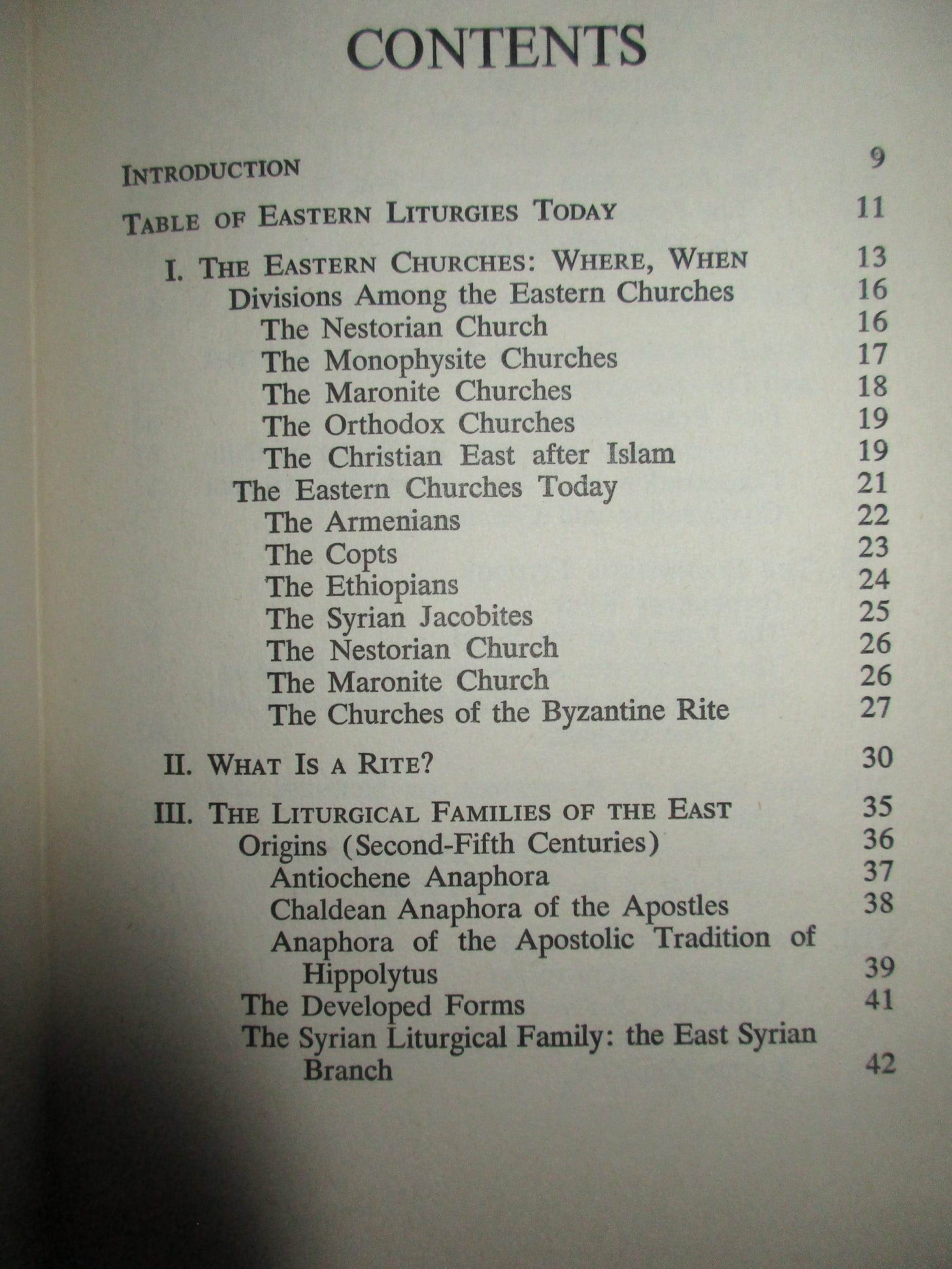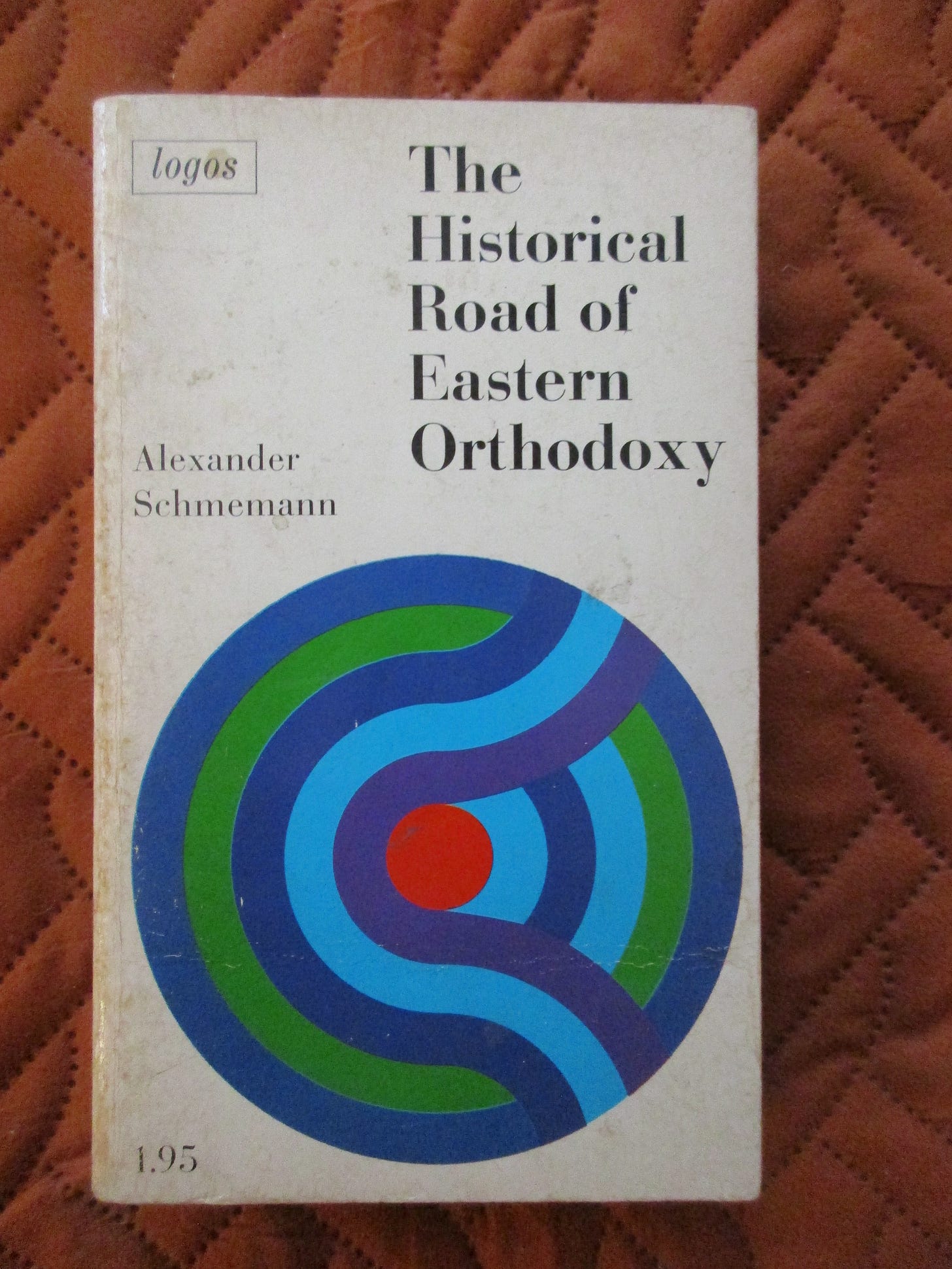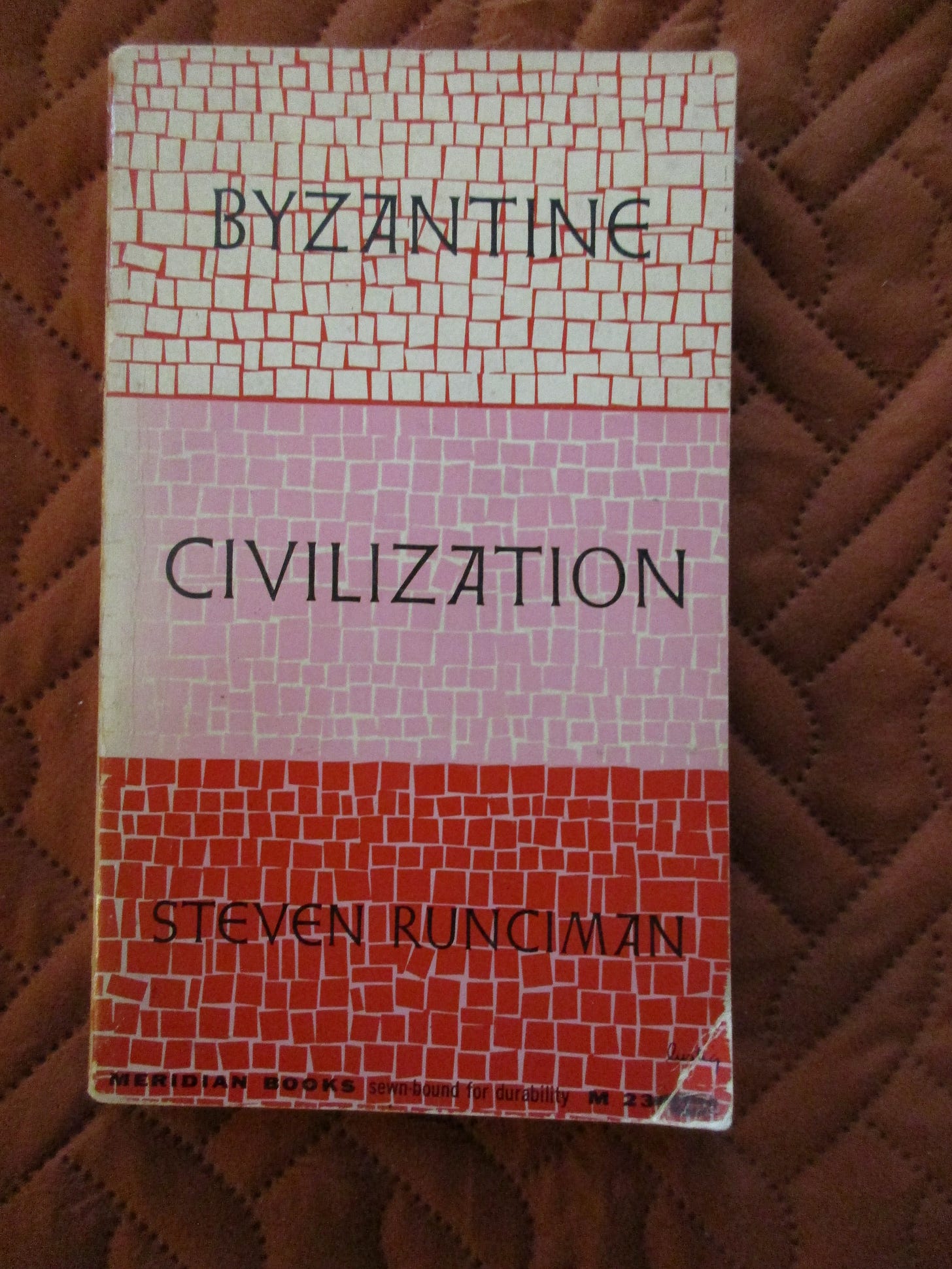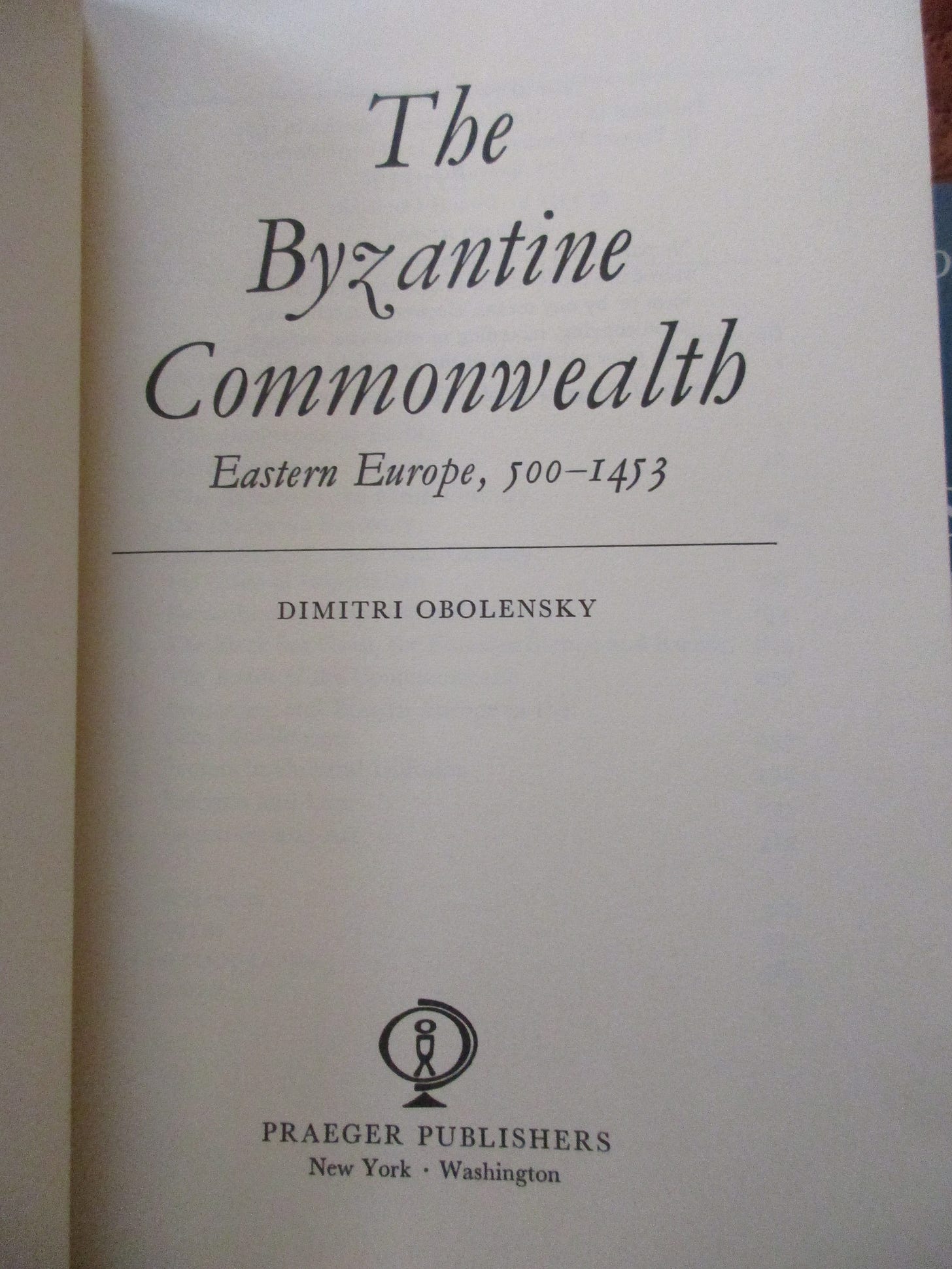Today (June 14) is the Feast of St. Basil the Great, Bishop, Confessor, and Doctor of the Church. In the East, one of the main liturgies is named after him. he was best friends with St. Gregory of Nazianzus (the Theologian), and brother of St. Gregory of Nyssa; he came from a saint-filled family. His treatise on the Holy Spirit helped solidify our understanding of the Three Persons of the Holy Trinity. Schism is a tragic state. Pray for the day those in the Eastern Schism will return to communion with the Church of Rome.
I was (Eastern) Orthodox before I found my way to Rome. I have written about the journey (up to 2013). I have also written about the danger of seeking refuge in the schismatic East to escape the real problems of the West. I will have another bonus post at a later date with more on this topic.
Eastern Liturgies by Irenee-Henri Dalmais, O.P. (NY: Hawthorn, 1960, hc, 1960 imprimatur, #112 in the Twentieth Century Encyclopedia of Catholicism) is a useful brief overview of the various Eastern liturgies from a Catholic perspective. For a more polemical take on the East, see The Historical Road of Eastern Orthodoxy by Fr. Alexander Schmemann (Chicago: Regnery, 1966, pb). Fr. Schmemann is a towering figure in 20th Century Orthodoxy. Respected as a liturgical scholar, he taught several generations of students at St. Vladimir’s Seminary outside NYC. Two of my pastors were his students, and they spoke movingly of his influence. (See Kwasniewski’s critique of Schmemann at NLM here.) Schmemann, who best-known work is probably still For the Life of the World, had a keen eye for the problems of Western society though, as Kwasniewski points out, those same eyes had a vision-impairing beam in them.
Two well-regarded works on the general Byzantine world are Byzantine Civilization by Steven Runciman (NY: Meridian, 1956, pb) and The Byzantine Commonwealth by Dimitri Obolensky (NY: Praeger, 1971, cloth). Runciman is a scholar who writes very well. His books on the Crusades are well worth reading. An Englishman and not Orthodox, he is nevertheless one of the great allies of the East writing in English.
What is the answer to the schism? Perhaps we should ask who is the answer? I believe it is the Blessed Virgin. Known as the Theotokos in much of the East, if and when Russia is ever properly consecrated to Her Immaculate Heart I believe we will see a tremendous upsurge in Faith coming from the East and Holy Church once again breathing properly with both lungs.
Vladimir Soloviev was a brilliant philosopher, author and disciple of Dostoevsky. The latter, sadly, for all his brilliant insights, had a morbid hatred of the Roman Church. Soloviev saw that much of Russia’s woundedness stemmed from its separation from Rome. He converted, though his spiritual advisors instructed him to not change rites, even if he had changed allegiance. His A Tale of the Antichrist is a fascinating consideration of the east-West connection at the end of time. The book pictured above deals directly with the question of authority and the role of Rome: The Russian Church and the Papacy (San Diego, CA: catholic Answers, 2001, pb).
I will end this by linking to a video of a song much-loved in the East, which is translated in various ways but is something to the effect of “Rejoice Unwedded Bride.” Composed in the 20th Century by St. Nektarios of Aegina, it is now a para-liturgical hymn honoring Our Holy Mother.




